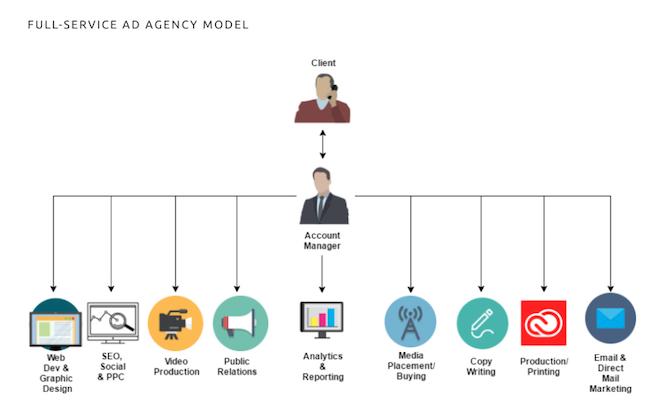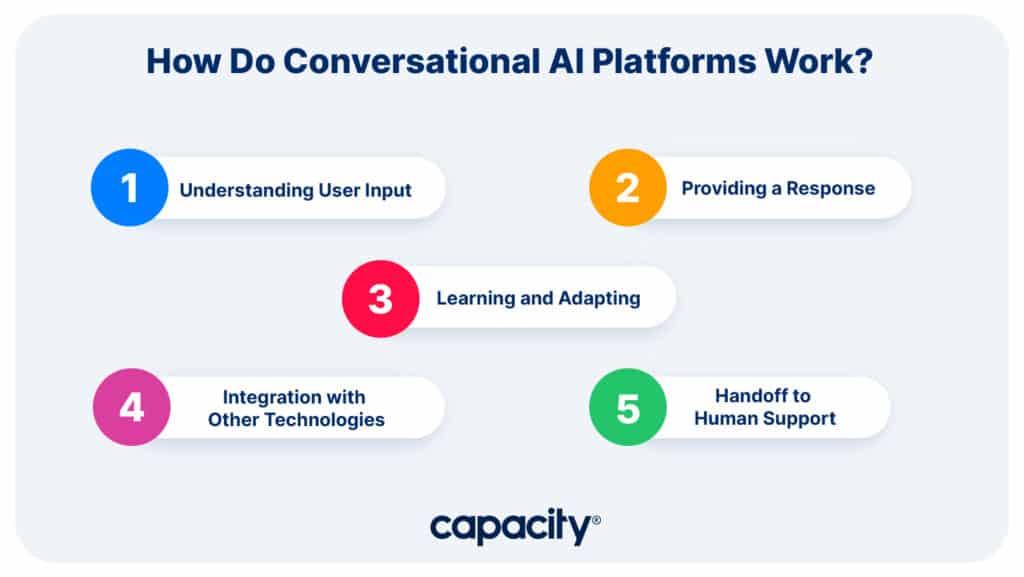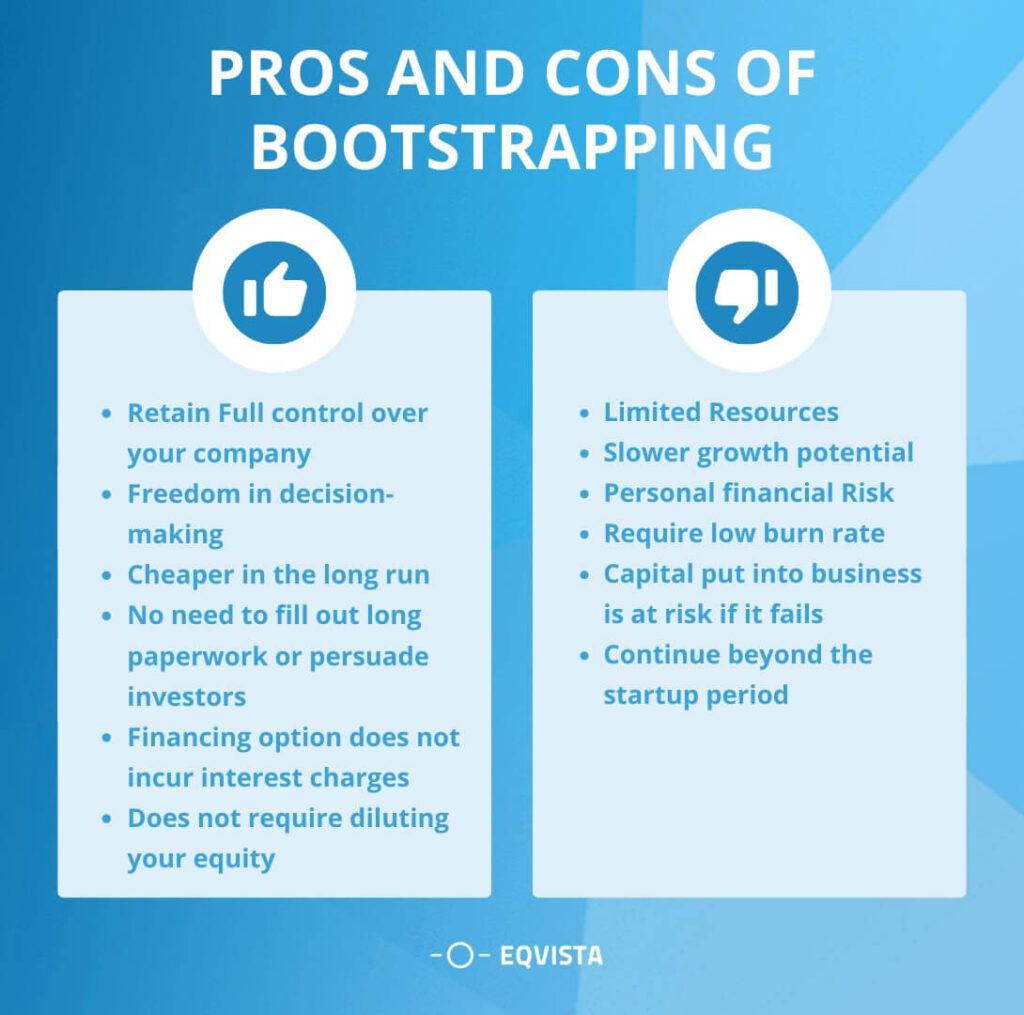
Are you looking to dive into the digital marketing world and carve out your niche? Starting your own SEO business could be the perfect way to combine your passion for online strategy with your entrepreneurial spirit. In today’s competitive landscape, where every click counts, businesses are desperate to improve their visibility on search engines. This presents a golden opportunity for savvy individuals ready to help them shine.
In this article, we’ll walk you through the essential steps to launch a thriving SEO agency in current_year. Whether you’re a seasoned marketer or a complete newbie, we’ll break down the process into seven manageable steps that will set you on the path to success. So, grab a notebook and get ready to turn your SEO dreams into reality!
Understanding SEO: Why It’s the Backbone of Digital Marketing
When diving into the world of digital marketing, one term frequently emerges as a cornerstone: SEO, or Search Engine Optimization. Understanding its significance is crucial for anyone looking to establish a successful online presence. SEO is not just a buzzword; it is the bedrock that supports everything from website visibility to user engagement.
Why is SEO so essential? Simply put, it enhances your website’s visibility on search engines. Most online experiences begin with a search engine, and a significant majority of users click on the first few results they see. If your site isn’t optimized, you risk being lost in the vast sea of online content.
Here are some key reasons why SEO should be at the forefront of your digital marketing strategy:
- Increased Traffic: A well-optimized site attracts more visitors, leading to higher potential sales.
- Brand Credibility: Higher rankings often correlate with increased trust and credibility in your brand.
- Cost-Effective Marketing: Compared to paid advertising, organic SEO provides a better return on investment in the long run.
- User Experience: Good SEO practices enhance site usability, making it easier for users to navigate your site.
One of the most compelling factors for SEO’s importance is its adaptability. Search algorithms are constantly evolving, and staying updated with these changes is vital for sustaining a competitive edge. Having a solid understanding of SEO allows you to pivot your strategies and maintain visibility in an ever-changing digital landscape.
Moreover, SEO is not just about keywords and backlinks; it encompasses a holistic approach to content creation, website design, and user engagement. Businesses that invest in SEO often find that their efforts yield dividends across various channels, from social media to email marketing.
To give you an idea of SEO’s impact, consider the following table showcasing the growth in organic traffic after implementing a robust SEO strategy:
| Month | Organic Traffic | Percentage Increase |
|---|---|---|
| January | 1,000 | – |
| February | 1,500 | 50% |
| March | 2,000 | 33% |
| April | 2,500 | 25% |
Investing in SEO not only helps in gaining visibility but also aids in understanding your audience better. Analyzing search behavior provides insights into what your customers are looking for, allowing you to tailor your offerings accordingly. This customer-centric approach is a vital part of effective digital marketing.
grasping the fundamentals of SEO is essential for anyone looking to launch a successful digital marketing agency. It acts as the backbone of your strategy and ensures that your business gains the online traction it deserves. With the right approach, SEO can transform your digital presence, making it a vital component in your entrepreneurial toolkit.

Identifying Your Niche: Finding Your Unique Selling Proposition
Identifying your niche is a crucial step in building a successful SEO business. It’s not just about what you do; it’s about how you stand out in a crowded marketplace. By pinpointing your unique selling proposition (USP), you can attract clients who resonate with your specific expertise and approach. Here are some effective strategies to help you discover your niche:
- Assess Your Skills and Interests: Start by listing out your strengths and passions. What aspects of SEO do you excel at? Whether it’s content optimization, technical SEO, or local search strategies, aligning your business with your skills can create a strong foundation.
- Research Market Demand: Use tools like Google Trends, SEMrush, and Ahrefs to identify gaps in the market. Look for keywords with high search volume but low competition. This can be a goldmine for defining your niche.
- Analyze Competitors: Take a close look at what other agencies are doing. Identify their strengths and weaknesses. See where you can differentiate yourself — perhaps through unique services or specialized industries.
- Engage with Your Audience: Reach out to potential clients through surveys or social media. Ask them what they struggle with regarding SEO. This direct feedback can guide you in tailoring your services to meet real needs.
- Define Your Ideal Client: Picture the type of business or individual you want to work with. What are their pain points? How can you solve their problems? Creating a customer persona can help clarify your target market.
Once you’ve identified your niche, it’s essential to articulate your USP clearly. This is how you communicate what makes your services distinct. Consider creating a simple table to showcase this:
| Your Unique Selling Proposition | How It Benefits Clients |
|---|---|
| Specialization in E-commerce SEO | Increased visibility in a competitive online marketplace, leading to higher sales. |
| Local SEO Expertise | Improved local rankings, driving foot traffic and local inquiries. |
| Data-Driven Strategies | Results backed by analytics, providing clients with measurable success. |
Keep in mind that your niche can evolve over time. As you gain more experience and insight into the market, don’t hesitate to refine your focus. Regularly revisit your research and adapt your services to meet changing client needs. Remember, the key to a thriving SEO agency is not just being an expert in SEO but being an expert in a specific area of SEO that sets you apart.
By deeply understanding your niche and clearly communicating your unique selling proposition, you’ll be well on your way to building a reputable SEO business that attracts the right clients and fosters long-term success.
Building Your Skills: Essential SEO Knowledge for Success
Mastering SEO is an indispensable part of launching a successful agency. To effectively boost your clients’ online presence, you need a solid foundation in essential SEO concepts. Here are some key areas to focus on:
- Keyword Research: Understanding how to identify and utilize keywords that your target audience is searching for is vital. Use tools like Google Keyword Planner or SEMrush to find high-volume, low-competition keywords.
- On-Page Optimization: This includes crafting compelling meta titles, descriptions, and headers, as well as optimizing images and content for better readability and engagement.
- Technical SEO: Familiarize yourself with technical aspects such as site speed, mobile-friendliness, and XML sitemaps. These elements affect how search engines crawl and index your site.
- Link Building: Creating a strategy for acquiring high-quality backlinks is crucial. Focus on building relationships with other websites and providing valuable content that others want to link to.
- Analytics and Reporting: Learn how to track your SEO efforts using tools like Google Analytics. Understanding your metrics allows you to refine your strategies and demonstrate your value to clients.
It’s also important to stay updated with SEO trends and algorithm changes. The digital landscape is constantly evolving, and what worked yesterday might not work today. Join SEO communities, subscribe to industry blogs, and participate in webinars to keep your knowledge fresh.
Additionally, consider developing specific skills that can set your agency apart:
- Content Creation: Being able to produce high-quality, SEO-optimized content can attract organic traffic and engage users effectively.
- Social Media Integration: Understanding how SEO and social media interact can enhance your strategies, driving more traffic and improving search rankings.
- Local SEO: If you plan to serve local businesses, mastering local SEO techniques will be essential. This includes optimizing for Google My Business and local keywords.
| Skill Area | Importance |
|---|---|
| Keyword Research | High |
| On-Page Optimization | High |
| Technical SEO | Medium |
| Link Building | High |
| Analytics | Medium |
Investing time in these areas will not only enhance your personal skill set but also increase the credibility of your agency. As clients see tangible results from your SEO strategies, your reputation will grow, leading to more referrals and long-term partnerships.

Creating a Business Plan: Laying the Groundwork for Your Agency
When starting an SEO business, a solid business plan serves as your roadmap, guiding you through the initial phases and setting a clear path for growth. Your business plan should be both a strategic tool and a reflection of your vision. Let’s break down the essential components you should include to ensure your agency’s success.
1. Executive Summary
Your executive summary is a concise overview of your agency’s mission and vision. It should answer key questions, such as:
- What services will you offer?
- Who is your target audience?
- What sets you apart from competitors?
This section is crucial as it may be the only part potential investors or partners read, so make it compelling!
2. Market Analysis
Understanding the SEO landscape is vital. Conduct comprehensive market research to identify your target market and potential competitors. Use this data to craft a targeted approach. Consider creating a table to summarize your findings:
| Competitor | Services Offered | Market Position |
|---|---|---|
| SEO Agency A | On-page, Off-page SEO | Top 5 in Local Search |
| SEO Agency B | Content Marketing, Consulting | Strong in E-commerce |
3. Marketing Strategy
Your marketing strategy outlines how you will attract and retain clients. It should include:
- Online Presence: A professional website and active social media channels.
- Content Marketing: Regularly publish valuable content, such as blogs and case studies.
- Networking: Attend industry events and join online SEO communities.
By being proactive in your marketing efforts, you’ll establish your agency as a trusted authority in the SEO realm.
4. Financial Projections
Include a section with financial projections for at least the next three years. This should cover:
- Startup costs
- Monthly expenses
- Revenue forecasts
- Break-even analysis
Utilizing a clear financial plan helps you keep track of your agency’s growth and ensures you’re prepared for any potential challenges.
5. Operational Plan
Detail how your agency will operate daily. This includes:
- Team structure and roles
- Client onboarding process
- Tools and software to be used for SEO tasks
A well-defined operational plan ensures that everyone on your team knows their responsibilities, leading to increased productivity and better service delivery.
6. Conclusion
Wrapping up your business plan effectively sets the stage for execution. Review each section to ensure coherence and clarity. A well-thought-out business plan not only guides your agency in the initial phase but also serves as a living document that evolves as your agency grows.

Setting Up Your Brand: Crafting an Identity That Stands Out
When embarking on your SEO business journey, establishing a strong brand identity is crucial for your success. A distinctive brand not only sets you apart from competitors but also helps build trust with potential clients. Here are some key elements to consider when crafting your unique identity:
- Define Your Mission: Clearly articulate what your agency stands for. What are your core values? What motivates you to help clients succeed? This mission will guide all aspects of your branding.
- Know Your Audience: Understanding your target market will allow you to tailor your messaging and services. Consider conducting surveys or interviews to gather insights on their needs and preferences.
- Create a Memorable Logo: Your logo is often the first interaction potential clients will have with your brand. Invest in professional design services to ensure your logo is both appealing and representative of your values.
- Choose a Color Palette: Colors evoke emotions and can significantly impact how your brand is perceived. Select a color scheme that resonates with your target audience and aligns with your brand’s personality.
- Develop a Consistent Voice: Establishing a uniform tone across all your communication channels—be it social media, your website, or email marketing—will help unify your brand and make it more recognizable.
- Create Engaging Content: Consider what type of content—blogs, videos, infographics—will showcase your expertise and attract your audience. High-quality, informative content will not only establish you as a thought leader but also improve your SEO ranking.
Once you’ve established these foundational elements, it’s time to put them into action. Consistency is key; whether it’s your website, social media profiles, or advertising materials, ensure that all touchpoints reflect your brand identity.
Here’s a simple table to visualize your branding elements:
| Brand Element | Description |
|---|---|
| Mission Statement | What drives your agency and defines its purpose. |
| Target Audience | The specific group of clients you aim to serve. |
| Logo | A visual representation of your brand identity. |
| Color Palette | The set of colors that embody your brand’s personality. |
| Brand Voice | The tone and style of your communication. |
| Content Strategy | The types of content you will create to engage your audience. |
As you grow your SEO agency, remember that your brand identity will evolve. Stay adaptable, listen to client feedback, and be willing to refine your approach. A strong brand not only helps you stand out today but also paves the way for long-term success in the competitive world of digital marketing.

Developing a Portfolio: Showcasing Your Expertise to Attract Clients
Creating a portfolio is one of the most effective ways to showcase your skills and attract potential clients. It’s not just about listing your past projects; it’s about telling a story that resonates with your audience. To truly stand out, focus on presenting your work in a way that highlights your expertise and the results you’ve achieved for others.
Start by selecting a variety of projects that demonstrate your range and versatility. Aim for a mix that includes:
- Case Studies: Detailed accounts of specific projects that outline the challenges, strategies implemented, and results achieved.
- Client Testimonials: Positive feedback from clients that adds credibility to your work.
- Visual Examples: Screenshots, infographics, or videos that visually represent your projects and results.
Organize your portfolio in a user-friendly manner. Use clear headings and sections to guide potential clients through your work. A well-structured portfolio might include:
| Section | Description |
|---|---|
| Introduction | A brief overview of your skills and what clients can expect from your services. |
| Project Gallery | A curated collection of your best work, with links to live projects when possible. |
| Client Feedback | Quotes or comments from clients that highlight your strengths and reliability. |
| Contact Information | Easy access for potential clients to reach out for collaborations or inquiries. |
Don’t forget to focus on the narrative around each project. Describe the problem the client faced, your approach to solving it, and the results that followed. Use data to back up your claims; for instance, mention specific percentage increases in traffic or engagement metrics that resulted from your work. This not only shows your technical skills but also paints you as a results-oriented professional.
Additionally, keep your portfolio updated. Regularly adding new projects, results, and testimonials ensures that your portfolio reflects your current capabilities and trends in the SEO industry. An outdated portfolio may suggest stagnation, while a fresh, dynamic showcase of work can signal your ongoing commitment to learning and growth.
don’t hesitate to share your portfolio widely. Utilize social media platforms, professional networks, and even local business groups to get your work in front of potential clients. The more visibility your portfolio receives, the greater the chances you’ll attract clients who resonate with your style and expertise.
Networking and Partnerships: Building Relationships for Growth
In the world of SEO, the significance of networking and forging partnerships cannot be overstated. Relationships are the lifeline of any business, particularly in an industry that thrives on collaboration and shared knowledge. To transform your SEO agency into a successful entity, consider these key strategies:
- Join Professional Networks: Engage with local and online SEO communities. Platforms like LinkedIn, industry forums, and various social media groups are great places to connect with peers and potential clients.
- Attend Conferences and Workshops: Industry events provide invaluable opportunities to meet experts, learn about the latest trends, and pitch your services. Don’t miss out on conferences that align with your niche.
- Collaborate with Other Businesses: Partnering with web development firms or digital marketing agencies can lead to mutual referrals. By creating a network of complementary services, you enhance your offerings and reach.
- Leverage Online Communities: Platforms such as Reddit, Quora, and specialized SEO forums allow you to showcase your expertise, answer queries, and engage with potential clients in an informal setting.
- Engage in Content Collaboration: Team up with other content creators or influencers in the industry. Guest blogging, co-hosting webinars, or participating in podcasts can widen your audience and establish credibility.
Building relationships isn’t just about making connections; it’s about creating value. Consider the following approaches to ensure you’re not just taking but also giving:
- Offer Your Expertise: Share your knowledge freely. Write articles, create how-to guides, or offer free consultations. This builds trust and positions you as an authority in the field.
- Be Genuine and Approachable: Authenticity is key. Show interest in others’ work, ask questions, and be open to discussions. People are more likely to collaborate with someone they feel a connection with.
- Follow Up and Stay Connected: After meeting someone, send a follow-up email or message. Share a relevant article or a thoughtful insight about a conversation you had. Regular contact helps maintain the relationship.
- Showcase Mutual Successes: When you collaborate with partners, celebrate your joint successes publicly. This not only strengthens your bond but also enhances both parties’ reputations.
Consider implementing a simple partnership matrix to evaluate potential collaborations based on various factors like expertise, audience overlap, and mutual goals:
| Partner Type | Expertise | Audience Overlap | Potential Benefits |
|---|---|---|---|
| Web Development Agency | Technical SEO | High | Joint projects, referrals |
| Content Marketing Firm | Content Creation | Medium | Content collaborations, webinars |
| Social Media Influencer | Engagement Strategies | High | Increased reach, brand awareness |
Ultimately, the key to thriving in the SEO industry lies in the strength of your network. By actively nurturing relationships and seeking out opportunities for partnership, you pave the way for growth and success.
Marketing Your Services: Strategies to Get Your Agency Noticed
To help your SEO agency stand out in a crowded market, you need to adopt a multifaceted marketing approach. Here are some effective strategies that can elevate your visibility and attract potential clients:
- Build a Strong Online Presence: Your website is the digital face of your agency. Ensure it’s not just visually appealing but also optimized for search engines. Include case studies, testimonials, and a blog featuring industry insights to demonstrate your expertise.
- Leverage Social Media: Use platforms like LinkedIn, Twitter, and Facebook to showcase your work and connect with potential clients. Share valuable content, engage with followers, and participate in relevant discussions to build your authority.
- Networking and Partnerships: Attend industry events, webinars, and local meetups to connect with other professionals. Building relationships with complementary businesses can lead to referrals and collaborative opportunities.
- Create Valuable Content: Position your agency as a thought leader by producing high-quality content that addresses common pain points in your industry. This could be in the form of blogs, whitepapers, or even video tutorials.
- Utilize Email Marketing: Develop an email list of potential clients and industry contacts. Regular newsletters sharing insights, tips, and updates about your services can keep your agency top of mind.
Another effective method of marketing your services is through offering free workshops or webinars. This not only showcases your expertise but also allows potential clients to experience your agency’s value firsthand. You can cover topics like:
| Webinar Topic | Target Audience |
|---|---|
| SEO Basics for Small Businesses | Local Business Owners |
| Advanced Link Building Techniques | Marketing Professionals |
| Content Marketing Strategies | Content Creators |
| Measuring SEO Success | Business Executives |
Don’t underestimate the power of search engine optimization for your own agency. Optimize your content and website for relevant keywords that potential clients might be searching for. This organic visibility can lead to increased traffic and inquiries.
consider running targeted ads on platforms like Google Ads or social media. By focusing on specific demographics and interests, you can reach potential clients actively seeking SEO services. Ensure your ad copy is compelling and includes a strong call to action.
By implementing these strategies, you can significantly enhance your agency’s visibility and attract a steady stream of clients. Remember, the key is consistency and providing value at every touchpoint in your marketing efforts.

Establishing Client Relationships: Delivering Exceptional Value
Building strong client relationships is at the heart of running a successful SEO agency. It’s not just about delivering a service; it’s about creating a partnership that fosters trust and mutual growth. To achieve this, focus on establishing clear communication channels and setting realistic expectations from the outset.
Start by understanding your client’s goals. Each business has unique needs, so take the time to listen and ask questions. This not only demonstrates your commitment but also helps in tailoring your SEO strategies to align with their objectives. A few key questions to consider include:
- What are your primary business goals?
- Who is your target audience?
- What challenges are you currently facing in digital marketing?
Next, ensure that your clients are involved in the process. Regular updates and check-ins can help build transparency. Utilize a project management tool where clients can view progress, provide feedback, and feel included in the journey. This way, they are not just passive recipients of your services but active participants in their digital marketing success.
It’s also essential to deliver exceptional value beyond initial expectations. Offer insights and recommendations that go beyond the scope of your contract. For instance, if you notice opportunities for improvement in their website design while working on SEO, share your findings. This approach not only helps improve their results but positions you as a trusted advisor rather than just a service provider.
| Value-Adding Strategies | Benefits |
|---|---|
| Regular Performance Reports | Helps clients understand ROI and adjust strategies. |
| Competitor Analysis | Identifies gaps and opportunities for your clients. |
| SEO Workshops | Empowers clients with knowledge and skills. |
never underestimate the power of personal touch in client interactions. A simple thank-you note or a follow-up call after a project wraps can leave a lasting impression. Celebrating milestones together—like achieving a significant traffic increase or ranking improvement—reinforces the partnership and shows your genuine investment in their success.
In the ever-evolving landscape of SEO, adaptability is key. As you grow your agency, stay attuned to industry changes and continuously educate your clients. By positioning yourself as both a service provider and a partner in their growth, you’ll not only enhance client satisfaction but also pave the way for long-term relationships that are mutually beneficial.

Keeping Up with Trends: Staying Ahead in the Ever-Changing SEO Landscape
In the fast-paced world of digital marketing, staying ahead of the curve in SEO is essential for any agency’s success. The landscape is continually evolving, influenced by advancements in technology and shifts in consumer behavior. To thrive in this competitive environment, you need to be proactive about keeping up with the latest trends and strategies.
One of the most effective ways to stay informed is by following industry leaders and influencers. Subscribe to their newsletters, listen to their podcasts, and engage with their content on social media. This will not only enhance your knowledge but also help you build connections that can lead to collaborative opportunities.
- Regularly Attend Webinars and Conferences: These events provide insights into upcoming trends and are excellent networking opportunities.
- Join SEO Communities: Online forums and groups can be invaluable for sharing knowledge and experiences with peers.
- Utilize SEO Tools: Tools like SEMrush, Moz, and Ahrefs can help you track changes in search algorithms and analyze competitor strategies.
Another critical aspect of staying relevant is adopting a flexible approach to your strategies. What worked yesterday may not work today, so be ready to pivot. Regularly analyze your results and make data-driven adjustments to your campaigns. This agility will not only help you navigate changes but also position your agency as a thought leader in the industry.
Moreover, consider investing in training for yourself and your team. SEO is not just about technical skills; understanding user intent and behavior is equally crucial. Training sessions can include:
- Content Creation Workshops: Learning how to craft SEO-friendly content that resonates with the target audience.
- Technical SEO Training: Keeping the team updated on coding standards and site structure.
- Analytics Mastery: Understanding data interpretation to refine strategies.
As you build your agency, make sure to establish a strong online presence. Create a user-friendly website filled with valuable content, and utilize social media to engage with your audience. Consistently sharing insights and case studies can showcase your expertise and attract potential clients.
Lastly, consider maintaining a content calendar to ensure you address trending topics and updates in the SEO realm. This proactive approach can help you position your agency as a go-to resource for clients who want to keep ahead of the trends.
| Trend | Description | Actionable Tip |
|---|---|---|
| Voice Search Optimization | More users are searching via voice commands. | Focus on natural language and long-tail keywords. |
| Core Web Vitals | Page experience factors are critical for ranking. | Optimize site speed and mobile responsiveness. |
| E-A-T | Expertise, Authority, Trust are essential for content. | Enhance author credentials and cite credible sources. |

Measuring Success: Metrics That Matter for Your Agency’s Growth
Key Performance Indicators (KPIs) to Track
To ensure your SEO agency is on a path to growth, it’s essential to focus on metrics that provide actionable insights. Here are some critical KPIs to monitor:
- Organic Traffic: This indicates the number of visitors arriving at your site through search engines. A consistent increase suggests that your SEO strategies are effective.
- Keyword Rankings: Track the position of targeted keywords over time. This helps identify which keywords are gaining traction and which need more attention.
- Conversion Rate: Measure how many of your visitors are taking desired actions, such as signing up for a newsletter or making a purchase. High conversion rates signify successful optimization efforts.
- Bounce Rate: A high bounce rate can indicate that your content isn’t engaging. Aim to provide value that keeps visitors on your site longer.
- Backlink Profile: Quality backlinks are crucial for SEO. Monitor the growth and quality of links pointing to your site to boost authority and rankings.
Customer Acquisition Cost (CAC)
Understanding how much it costs to acquire a new customer is vital. This metric allows you to evaluate the efficiency of your marketing strategies. To calculate CAC:
| Total Marketing Expenses | Number of New Customers Acquired |
|---|---|
| $10,000 | 100 |
| $5,000 | 50 |
In the example above, the CAC for the first case is $100, while in the second, it’s $100 as well. A lower CAC indicates more efficient marketing, which is essential for profitability.
Client Retention Rate
Keeping your clients satisfied is as important as acquiring new ones. The client retention rate reflects how well your agency maintains relationships. To calculate this metric:
| Clients at Start of Period | Clients at End of Period | Clients Lost |
|---|---|---|
| 50 | 45 | 5 |
With a retention rate calculation, you can identify potential areas for improvement in client satisfaction and service delivery.
Revenue per Client
This metric helps assess the average revenue generated by each client over a specific period. A higher revenue per client indicates successful upselling or cross-selling efforts. To calculate:
- Total Revenue: The total income generated from clients.
- Number of Clients: Total active clients during that period.
For example, if your agency earned $50,000 from 25 clients, your revenue per client would be $2,000. Monitoring this metric can help tailor your services to maximize profitability.
Actionable Insights
Tracking these metrics is just the beginning. Regularly reviewing them will provide valuable insights to refine your marketing strategies and service offerings. Consider setting up monthly reports to assess performance, identify trends, and pivot strategies when necessary. By focusing on these key metrics, you’ll be equipped not only to measure success but to drive sustainable growth for your SEO agency.

Scaling Your Business: Strategies for Expansion and Sustainability
Scaling your SEO business goes beyond just acquiring clients; it involves creating a sustainable model that adapts to changing market demands while ensuring consistent growth. Successful expansion requires strategic planning and execution. Here are several approaches to help you thrive:
Invest in Technology: Emphasize the importance of utilizing the latest SEO tools. Not only do they streamline processes, but they also improve the quality of your services. Consider investing in:
- Keyword research tools
- Analytics software
- Link-building automation platforms
- Content optimization tools
Build a Strong Team: Your team is the backbone of your agency. As you scale, ensure you hire skilled professionals who align with your vision. Focus on:
- Content creators with SEO expertise
- Analysts who can interpret data effectively
- Account managers to foster client relationships
Diversify Your Services: Offering a range of services can attract different client segments. Consider adding:
- Social media management
- Pay-Per-Click (PPC) advertising
- Website development
Focus on Client Retention: It’s often cheaper to retain clients than acquire new ones. Develop a client loyalty program or regular check-ins to ensure satisfaction. This can look like:
- Monthly performance reports
- Quarterly strategy sessions
- Exclusive discounts on additional services
Leverage Case Studies: Showcase your successes to attract new clients. Create a visually appealing table summarizing your results for potential clients:
| Client | Service Provided | Results |
|---|---|---|
| Company A | SEO Audit | Increased traffic by 150% |
| Company B | Content Strategy | Ranked #1 for 10 keywords |
| Company C | Link Building | Boosted domain authority from 30 to 45 |
Network and Collaborate: Partnering with complementary businesses can expand your reach. Collaborate with:
- Web design agencies
- Marketing consultants
- Local businesses for cross-promotions
Continuous Learning: The SEO landscape is constantly evolving. Keep your skills and knowledge up to date by attending workshops, webinars, and industry conferences. This commitment to learning will translate into more effective strategies for your clients.
By implementing these strategies, you can position your SEO agency for sustainable growth. Remember, the key to scaling is not just about acquiring new clients but creating lasting relationships and staying ahead of industry trends.

Continuing Education: Investing in Your Growth as an SEO Expert
To establish yourself in the ever-evolving world of SEO, continuous education is essential. The landscape of search engine optimization changes frequently, influenced by advancements in technology, algorithm updates, and shifting consumer behaviors. Investing in your growth not only enhances your skill set but also ensures that your agency remains competitive and delivers exceptional results for your clients.
Here are several avenues through which you can expand your SEO expertise:
- Online Courses: Platforms like Coursera, Udemy, and Moz offer a wealth of specialized courses tailored for SEO professionals. These courses can provide you with the latest tactics and tools, often taught by industry leaders.
- Webinars and Workshops: Participating in live sessions can help you stay up-to-date with real-time insights and strategies. Plus, they often allow for direct interaction with experts and peers.
- SEO Conferences: Engaging with the community at events like SMX or BrightonSEO can significantly boost your knowledge base. These gatherings often feature renowned speakers and networking opportunities that can open new doors for your agency.
- Books and E-books: A good read can provide depth to your understanding. Look for recent publications from respected authors in the SEO field.
- Podcasts: While on the go, tuning into SEO-related podcasts can keep you informed about trends and tips. Some popular options include “Marketing School” and “The Smart Passive Income Podcast.”
Moreover, it’s essential to leverage hands-on practice to reinforce your learning. Consider dedicating time each week to experiment with new tools or techniques. For instance, you might test a new keyword strategy on your own website or analyze a competitor’s performance using advanced analytics tools.
Networking with other professionals can also be an invaluable resource for education. Joining local SEO meetups or online communities allows you to share experiences and learn from others’ successes and challenges. Remember, the SEO journey is not a solitary one; collaboration often leads to innovative ideas and solutions.
Lastly, consider investing in certifications like Google Analytics or HubSpot Content Marketing. These credentials not only bolster your resume but also deepen your understanding of how all aspects of marketing intersect with SEO.
| Learning Method | Benefits |
|---|---|
| Online Courses | Structured learning, self-paced convenience |
| Webinars | Real-time expert insights, Q&A opportunities |
| Conferences | Networking, exposure to cutting-edge strategies |
| Books | In-depth analysis, varied perspectives on SEO |
| Podcasts | Flexible learning, diverse topics on-the-go |

Navigating Challenges: Overcoming Common Hurdles in the Industry
Starting an SEO business can be an exhilarating journey, but it’s not without its share of challenges. Every new entrepreneur faces obstacles, and understanding how to navigate them is key to your success. Here are some common hurdles you might encounter and tips on how to effectively overcome them.
- Building a Client Base: One of the first challenges is securing clients. Networking is essential. Attend industry events, join online forums, and leverage social media. Consider offering free consultations or discounted services for your first few clients to build a portfolio.
- Staying Updated with SEO Trends: SEO is a rapidly evolving field. To stay ahead, follow industry leaders, read relevant blogs, and participate in webinars. Set aside time each week to expand your knowledge and adapt your strategies accordingly.
- Competition: The SEO landscape is crowded. To stand out, focus on your unique value proposition. Perhaps you specialize in a specific niche or offer exceptional customer service. Highlight what makes you different in your marketing materials.
Another significant challenge is managing client expectations. SEO results take time, and it’s crucial to communicate this to your clients from the outset. Set realistic timelines and provide regular updates on progress. Transparency builds trust and helps manage their expectations.
Financial management can also be daunting for new agency owners. Create a budget and stick to it. Use accounting software to track your income and expenses. Consider setting aside a portion of your earnings for reinvestment into your business, whether it’s for tools or marketing.
don’t underestimate the power of a strong team. As your agency grows, you may need to hire additional team members. Look for individuals who not only have the necessary skills but also share your vision and values. A cohesive team can help you overcome challenges more effectively than going it alone.
| Challenge | Solution |
|---|---|
| Client Acquisition | Network, offer free services |
| Keeping Up with Trends | Follow experts, continuous learning |
| Market Competition | Unique value proposition |
| Managing Expectations | Communicate timelines clearly |
| Financial Management | Budgeting and tracking |
| Building a Team | Hire for skills and culture fit |
Frequently Asked Questions (FAQ)
Q: What is the first step to starting an SEO business?
A: The first step is to understand the fundamentals of SEO. You need to familiarize yourself with concepts like keyword research, on-page and off-page optimization, and analytics. This knowledge will be the foundation of your agency. Consider taking online courses, following SEO blogs, and experimenting with your own website or a practice project.
Q: Do I need to have a background in marketing or technology to start an SEO business?
A: Not necessarily! While having a background in marketing or technology can be helpful, it’s not a requirement. Many successful SEO entrepreneurs come from diverse fields. What’s crucial is a willingness to learn and adapt. With the right resources and dedication, anyone can master SEO.
Q: How important is it to define my niche when starting an SEO agency?
A: Defining your niche is extremely important! It helps you target specific clients and differentiate yourself in a crowded market. Whether you want to focus on local businesses, e-commerce, or a particular industry, being clear about your niche allows you to tailor your services and marketing efforts effectively.
Q: What about the legal aspects? Do I need to worry about that at the beginning?
A: Yes, addressing the legal aspects early on is crucial. You’ll want to choose a business structure (like an LLC or sole proprietorship), register your business, and understand any licenses or permits you might need. It’s also wise to invest in a good contract template to use with clients, ensuring that both parties are protected.
Q: How do I acquire clients for my new SEO agency?
A: There are a variety of ways to attract clients! Start by leveraging your network—reach out to friends, family, and former colleagues to spread the word. Additionally, building a strong online presence through content marketing, social media, and even offering free workshops can establish your credibility and attract potential clients. Don’t underestimate the power of referrals, either!
Q: What SEO tools should I invest in as I start my agency?
A: Investing in the right tools can make a big difference! Start with essential tools like Google Analytics for tracking performance, Google Search Console for monitoring your site’s presence in search results, and keyword research tools like SEMrush or Ahrefs. As you grow, you might want to explore additional tools for site audits and competitive analysis.
Q: How can I ensure my agency stays competitive in the ever-changing SEO landscape?
A: Staying competitive requires continuous learning and adaptation. SEO is always evolving, so keep up with the latest trends and algorithm updates by following industry leaders and participating in relevant webinars. Networking with other professionals and joining SEO communities can also help you stay informed and inspired.
Q: What’s the best way to measure the success of my SEO agency?
A: Success can be measured in a few ways: client satisfaction, the growth of their website traffic, and, ultimately, their revenue increase. Use key performance indicators (KPIs) like organic traffic, keyword rankings, and conversion rates to gauge your effectiveness. Regularly review these metrics to continuously refine your strategies and showcase your value to clients.
Q: any tips for keeping motivated during the ups and downs of running an SEO business?
A: Absolutely! Remember that every business faces challenges, especially in the early stages. Set clear goals, celebrate your small wins, and stay connected with a community of fellow entrepreneurs for support and motivation. Keeping a positive mindset and reminding yourself of why you started can help you push through tough times!
The Way Forward
As we wrap up our journey through the seven essential steps to launching your very own SEO business in 2023, remember that the path to success is as much about passion and perseverance as it is about strategy and skills. You’re now equipped with the foundational knowledge to turn your vision into reality—whether that’s helping local businesses enhance their online presence or guiding e-commerce giants to reach new heights.
Starting an SEO agency might seem daunting at first, but with the right mindset, a willingness to learn, and a commitment to providing value, you can carve out a niche in this ever-evolving industry. Stay curious, keep experimenting, and don’t shy away from adapting to the latest SEO trends.
So, take the leap! The digital landscape is brimming with opportunities, and the demand for SEO expertise isn’t going anywhere. Whether you’re a seasoned marketer or a newcomer, your unique perspective can make a difference. Now is the perfect time to turn your aspirations into action. Dive in, and let your SEO journey begin—success awaits!






